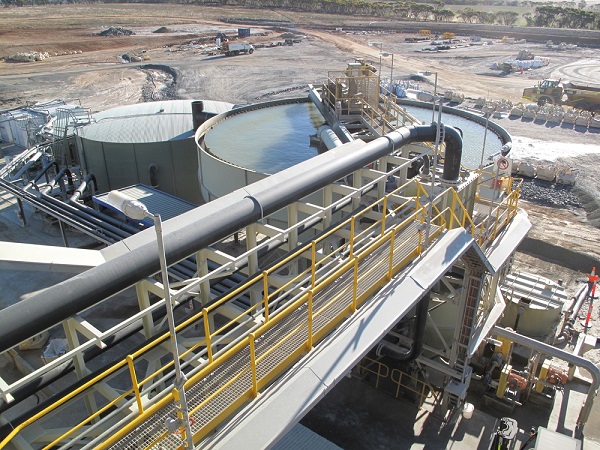More than 75 percent of the worlds lubricating grease is thickened with lithium hydroxide or lithium complex soap – but over 90 percent of the grease made each year in India is. Now Indias grease manufacturers say lithium hydroxide has been priced beyond their grasp, as electric cars and consumer electronics devour every available kilogram.
According to Eltipu Sayanna of Siddarth Grease and Lubes in Haryana, Indias grease manufacturers are totally dependent on imports of lithium hydroxide, having no native sources to draw upon. Up by six to seven times as much, the prices have skyrocketed over the past year, he told last months annual meeting of the European Lubricating Grease Institute in Venice, Italy.

Photo: Kamzara / Shutterstock
Lithium sources, such as this Galaxy Resources spodumene mine and processing plant in Western Australia, are increasing production, but much of their output is going for batteries.
Especially pinched are grease manufacturers with fixed-price supply contracts, who are forced to absorb the mounting cost and cannot pass it along to their customers, he indicated. Sayanna is president of the India Chapter of the National Lubricating Grease Institute (NLGI).
Global grease production in 2014, the most recent year for which NLGI has statistics, was 2.5 billion pounds. Indias share of this was 168 million pounds, including 151 million pounds thickened with lithium soaps.
Most of Indias lithium hydroxide had been coming from China, where mining companies dig out spodumene ore, separate the lithium, and process it into lithium hydroxide monohydrate (chemical symbol: LiOH-H2O). LiOH, a white crystalline powder, is used in making batteries, lubricating greases, dyes, pharmaceuticals and other products.
Another speaker at the ELGI meeting, Felipe Smith of minerals giant SQM, confirmed that lithium hydroxide supply fell short of demand in 2014 and again in 2015 due to booming demand from the battery industry. He said the snugness will continue throughout this year – and longer if new capacity is not built.
SQM holds a 25 percent share of the worlds lithium chemicals market of 155,000 metric tons a year, and aims to increase its output and sales by more than 20 percent this year, Smith said. But SQM does not mine lithium. Instead, it extracts brines that are rich in lithium bromide and other minerals from the Salar de Atacama, a vast salt flat in Chile. This brine solution is then processed to make lithium carbonate and lithium hydroxide.
The grease industry takes about 15 percent of the worlds lithium chemicals, Smith said, but energy storage is taking an increasing bite. In 2010, batteries took 32 percent of the supply; they now consume 50 percent, and by 2020 theyll require 57 percent, SQM predicts. By then, the company expects global supply of lithium chemicals to top 200,000 t/y.
Also attending the ELGI meeting was Daisy Wang, from the marketing department of Jiangxi Jiangli New Material Science and Technology Co. Her company has capacity to make 15,000 t/y of LiOH at plants in Jiangxi and Sichuan, China. Even though it is currently sold out of all material, the company was exhibiting at the ELGI meeting as evidence that it has not abandoned the grease market. We still need to keep in contact with our customers, because we hope to have next year more supply for the grease market, she assured.
Wang said her company is adding capacity as fast as it can, but Chinas urgent need for electric vehicles to ease its air pollution has absorbed all of Jiangli New Materials current LiOH output. Next year it plans to mine an additional 20,000 tons of spodumene, yielding 3,000 more tons of LiOH, and it may source even more spodumene from Australia. Still, she believes it may be another 12 months before the market feels any relaxation of supply.
The deeper problem in India, confided a different exhibitor at the ELGI meeting, is whats colloquially called the price gap. Thats the gap between the actual cost of the material and the price that Indian customers are willing to pay, this salesman quipped.
Others at the meeting explained that Indias grease manufacturers have tended to buy lithium hydroxide on a spot basis and bargain sharply for the lowest price. One observer suggested that they take a lesson from North American and European buyers, who assure reliable supplies by committing to long-term contracts with more than one seller. LiOH prices have gone up on those continents, too – but availability has not been an issue, he said.
The price of lithium has gone from 500 rupees a kilo before, to 3,000 and even 4,500 rupees now. The Indian manufacturers cant afford it, and worse, many are finding they cannot get it at all, at any price, this source remarked. Companies with fixed contracts to supply lithium grease are in serious trouble.
